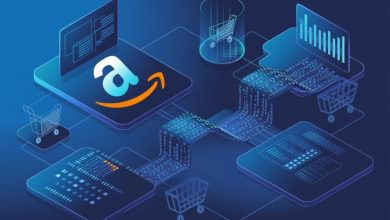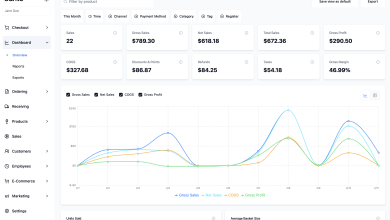
How does DevOps Strategy Power Global Brands? Imagine this: A global sporting event is underway, and millions of fans flood an e-commerce platform to grab limited-edition merchandise. The anticipation is high, yet within seconds, the website goes down. Pages will not load, transactions are aborted, and frustrated customers abandon the cart. The stakes? Billions in revenue and a black mark on a brand’s reputation. In a hyperdigital world today, one major failure in an online infrastructure can lead to very high financial losses and long-term damage to brand credibility.
Global retail e-commerce sales were estimated to reach $6.3 trillion by 2024. These numbers highlight the vastness of the world of online trading. Yet the world’s biggest names are still facing the complexities of digital commerce: traffic spikes, threats of cyber safety attacks, and even greater expectations for an intuitive user experience. Studies indicate that 88% of online consumers will not return to a website after having a bad user experience. Therefore, when customer expectations soar, e-commerce platforms must go far beyond being functional; conversely, they must be fail-proof, secure, and infinitely scalable.
One of the world’s leading sportswear giants met that challenge head-on. Increasing consumer demand was putting pressure on its digital structure. Black Friday, international product launches, and big sporting events tended to cause unexpected spikes of traffic that threatened system performance. Keeping the doors of the online store open became a mission-critical priority.
This is the point where Suresh Gangula took the initiative to redefine this particular brand’s approach toward cloud automation, scalability, and security. As a DevOps Engineer, Suresh didn’t limit himself to merely optimizing systems, he was setting up a futuristic foundation that would withstand the digital demands of tomorrow. What was the challenge: how to engineer a highly extended, existing framework into a more resilient, automated, and fail-proof system without disrupting ongoing operations?
The 21st century witnessed an ever-increasing demand for systems that go beyond infrastructure. Suresh Gangula took charge to facilitate the automation-led transformation of Terraform, AWS, Azure, and PCF into this age. An infrastructure-as-code (IaC) approach was built to allow for easy scaling of platforms, catering to millions of users without breaking a sweat. The implementation of auto-scaling groups, along with load balancers, allowed the system to scale up or down. This prevented downtime during busy days like Black Friday or large athletic championships, which would have led to significant sales losses.
Scalability was nothing but half of the story. Security became prime. Research has shown that the cost of cyber crimes to the global economy was about $9.5 trillion in 2024, with e-commerce platforms being the biggest targeted victims. As threats evolved rapidly and restrictive frameworks were enacted, Suresh embedded DevSecOps principles into the brand’s cloud architecture. He designed the architecture using AWS IAM, Lambda functions, and Chef for automated enforcement of security, compliance with GDPR and PCI DSS, risk mitigation, and customers’ data protection. He also solidified architecture utilizing Akamai CDN(content delivery network) and WAF( web application firewall) for bot mitigation and security attacks.
Continuous Integration Continuous Deployment (CI/CD) pipeline integration with Jenkins and GitLab was a good move on Suresh’s part, as it further increases efficiency by reducing deployment time and system failures. This guaranteed that updates and new features could be rolled out smoothly while customer experience disruptions could be minimized. Security scans were integrated into the CI/CD pipeline. This allowed for the proactive identification of vulnerabilities early in the development cycle, ensuring compliance and minimizing risk. Automated testing was also implemented to validate builds and catch bugs before production deployment. A blue-green deployment strategy enhanced rollback mechanisms. This allowed for quick reversal of errors, minimizing downtime and maximizing operational reliability.
Reduced cost-efficiency was another feather in its cap. Studies have shown that companies implementing cloud automation will benefit from the reduction of operational costs by as much as 30 percent. By way of Suresh’s help with auto-scaling cloud resources and predictive analytics, this brand could save huge amounts under its infrastructure costs while ensuring an optimal level of performance. Automation eliminated the need for extensive manual intervention. This freed up IT teams to focus on innovation instead of system performance and troubleshooting.
The results? A digital infrastructure that not only performed but thrived. The brand witnessed no significant outages during busy shopping seasons at all, thereby improving customer trust and satisfaction. Security automation reduced most vulnerabilities and fortified the platform from possible breaches. His streamlined DevOps processes allowed easy and fast roll-out of new features, keeping the brand agile in an ultra-competitive market. More importantly, customer satisfaction scores increased as they experienced uninterrupted and smooth interactions with the platform.
But what if these innovations hadn’t been implemented? The consequences would have been severe: crashes during peak sales, frustrated customers taking their business elsewhere, and potential cybersecurity breaches compromising sensitive user data. In an industry where digital reliability directly translates to revenue, the absence of digital transformation could have significant consequences. These consequences could have included lost sales and risked market standing. Downtime alone can lead to revenue losses exceeding millions per hour, not to mention the irreversible damage to brand reputation.
Today, the role of DevOps is crucial. According to a survey conducted recently, businesses that apply DevOps practices see an improvement in software delivery and reliability by 63%. It is no longer just about maintaining uptime; it is about continuous innovation and frictionless digital experiences that engender customer loyalty. Ignoring DevOps becomes a sharp risk for brands since fast-moving competitors, with their robust cloud architecture, will swiftly capture market share.
“Innovation isn’t just about creating new products; it’s about delivering seamless digital experiences. My focus was on building a resilient infrastructure that not only met today’s demands but could scale and adapt to future challenges.” Suresh expresses his philosophy while discussing his work.
In the current retail realm, one cannot overemphasize the relevance of DevOps. In this digital-first scenario, where expectations among consumers are on the top and competition beyond one’s imagination. People like Suresh turn out to be the unsung heroes of tomorrow’s fashion of online commerce. Blending together technology with business strategy, DevOps professionals ensure that brands not only keep pace but also lead the field. DevOps practices transform how companies operate, leading to both avoiding failure and encouraging innovation. This innovation optimizes customer experience and ensures business viability. Future technological frontiers open a new avenue for better, secure, and seamless digital infrastructure that makes a brand thrive.



